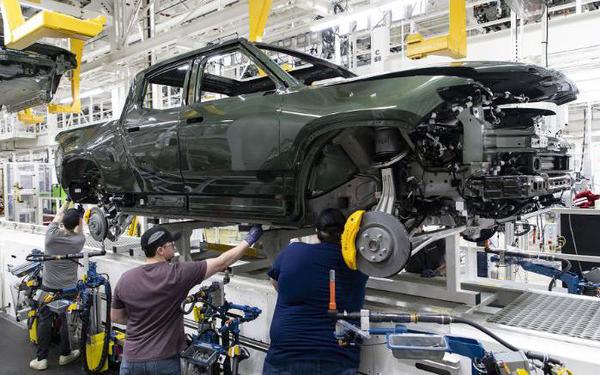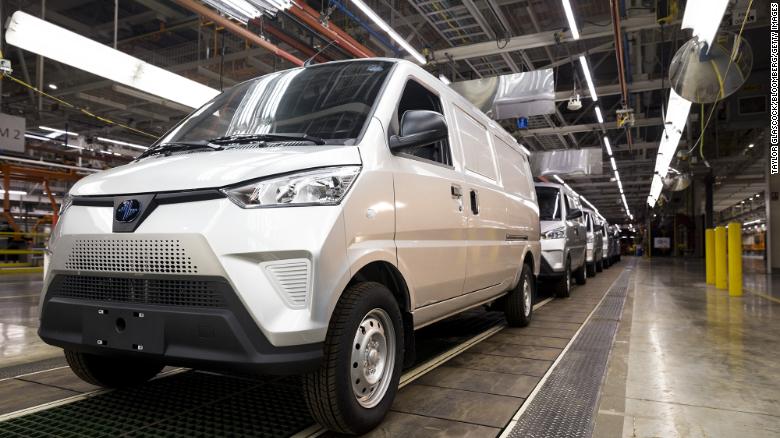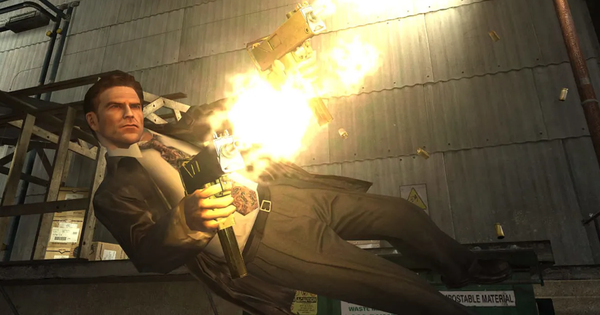A series of companies from the US to China decreased in value by half, even Tesla did not “escape” the decline
This week, Amazon and Ford reported that they have lost a combined $12.3 billion in the past three months due to investments in electric vehicle company Rivian. The losses dampened hopes that any electric vehicle company “will inevitably turn to gold.”
Even Rivian, considered by many auto experts to be the most promising Western electric vehicle start-up, is not immune to the boom and bust cycle unfolding in the electric vehicle market. But experts say this is typical as new industries arise.

Rivian’s stock has fallen 75% since its initial public offering last year. In November 2021, Rivian was valued at more than Ford and GM, but now the company is worth about half that.
Seen as a counterweight to Tesla, investors are attracted and appreciated. And a 12-year production run isn’t enough to insulate the company’s stock price from a downturn that affects nearly all electric vehicle companies.
In 2021, Rivian produces 1,015 vehicles, falling short of its 1,200 target. Its production rate has more than doubled since last year – producing 2,553 vehicles in the first three months of the year – but still lacks what it takes to be profitable and justify the company’s high valuation.
The company had plans to build a second manufacturing plant in Georgia to supplement its Illinois plant, where the current facility is expected to produce 200,000 vehicles per year. Rivian, like many automakers, also raised prices amid inflation and supply shortages, but apologized and pushed back the price increases on pre-orders following a backlash from customers.

The challenges are even worse for other electric vehicle companies that have gone public in recent years. Share prices of Faraday Future, Lordstown Motors and Electric Last Mile Solutions have all dropped more than 70% since going public through the company SPAC and all have faced SEC investigations.
SPACs, which are already popular with electric vehicle companies, allow companies with no significant revenue or proven products to be publicly traded without as much oversight as a formality. traditional initial public offering.
A sharp drop in electric vehicle stocks could be a classic sign of booms and busts. New industries always stimulate investors with the opportunity to sit in the “financial rocket” and step into wealth. But some publicly traded companies may be listed during less exciting times.
The dotcom crash of 2000 is an often cited example. According to William Quinn, a lecturer at the Queen’s School of Management in the UK, who studies stock market bubbles, although no new public company entrants into the electric vehicle sector has been found guilty of fraud, the fraud has is indeed typical of a stock market bubble.
He points to the British bicycle bubble of 1890 when hundreds of new bicycle companies were listed on the stock exchange at overvalued valuations. Nearly all went bankrupt within a few years.
David Kirsch, a business professor at the University of Maryland and co-author of the book “Bubbles and Crashes,” said he hoped several electric vehicle startups would survive, but many failed. lose. Kirsch told CNN Business: “Stories are unraveling“.
The fates of two electric vehicle companies, Nikola and Lordstown Motors, are likely to get worse in 2020 and 2021, respectively, following significant reports alleging misconduct and inappropriateness from the first company. from Hindenburg Research.
U.S. electric vehicle companies aren’t the only ones experiencing a drop in valuations. China’s electric vehicle startups are seeing a similar situation. Nio’s shares are down 49% this year, while X-Peng’s is down 52% and BYD’s is down 17%. Even the world’s most valuable carmaker, Tesla, is not immune to the situation as its stock is down 27% this year.
Kirsch sees the drop in share prices of companies that want to compete with Tesla as proof of how difficult it is to turn startups that inspire investors into a proven business. success on paper by revenue and profit.
Kirsch said: “Some of these companies are being exposed in some way. There’s a saying that goes like this: When the tide goes out, you’ll see who isn’t wearing a bathing suit“.
Source: Bloomberg
at Blogtuan.info – Source: genk.vn – Read the original article here



